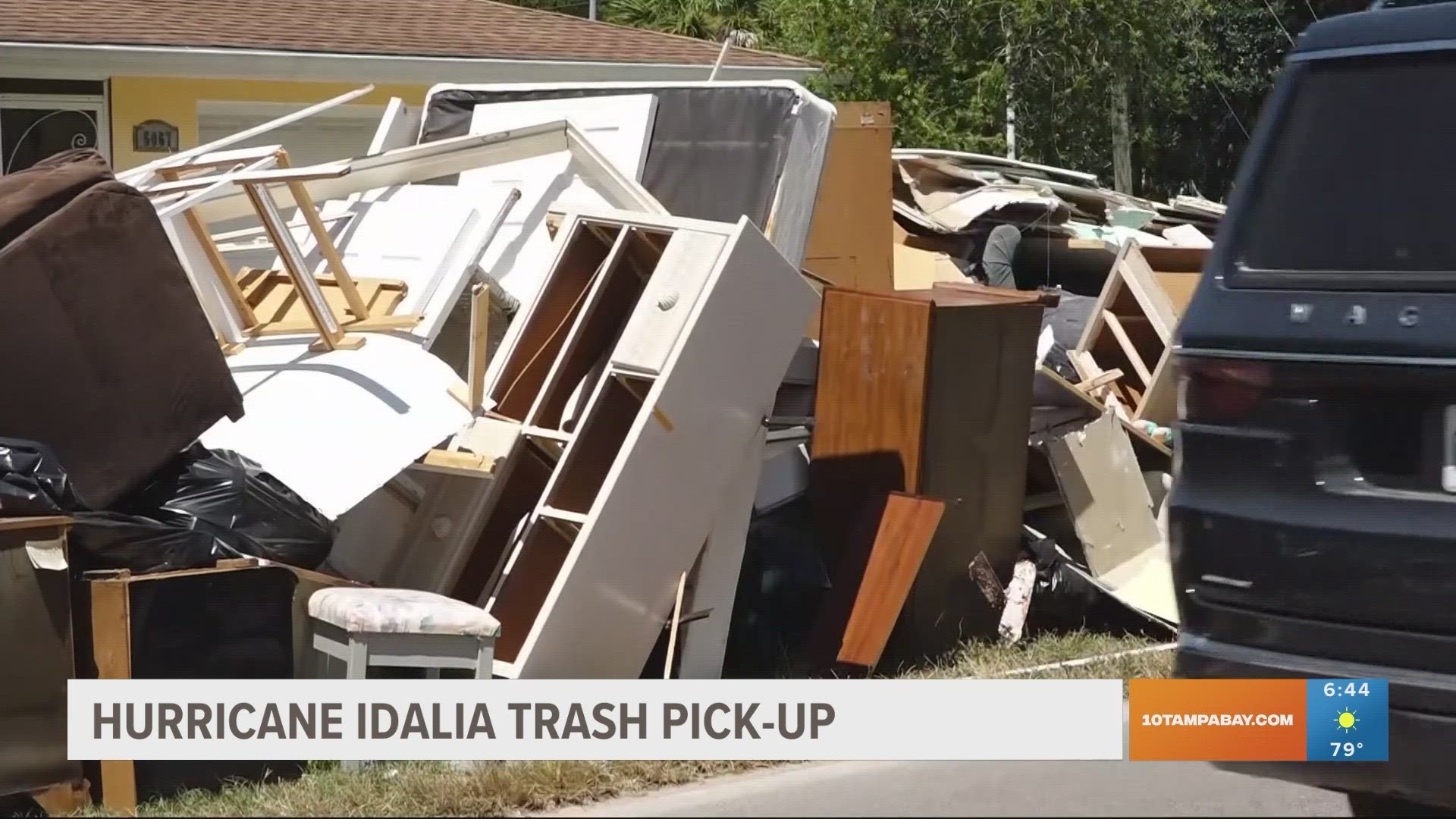HUDSON, Fla. — A small army of trash trucks has now started rumbling its way through some of the neighborhoods hardest hit by Hurricane Idalia.
For a week now, tons of soggy debris have been sitting in people’s yards waiting to be collected.
“Would really like to just get back to normal life,” Ryan Johnson, whose Hudson house was swamped, said.
Johnson and thousands of others still have debris piles in front of their houses. Often taller than they are.
“Every time you go into a different room, you are like 'Oh, I’ve got this and that,'” Johnson said.
Now – finally – a week after hurricane Idalia hit, the trash pick-up process is underway.
“I am really glad that FEMA is coming through,” Johnson explained. “I was able to speak with them already. Really glad that we’re getting some FEMA help.”
In Pasco and Hernando counties, the Federal Emergency Management Agency is now reimbursing for the collection.
But local leaders say time is of the essence to get that debris to the curb. Both for the federal funds and public health.
“That wood, that drywall, that carpeting, that flooring is all going to turn into mold. Mildew. It will start to deteriorate and smell, and we just want to clean it up as fast as we can for the residents to make it safe as possible for them,” Hernando County Emergency Management Director David DeCarlo said.
To promote efficiency, Hernando County leaders posted an illustration on the county's website and social media pages demonstrating the right way to dispose of all that debris.
“Try to keep it within 15 feet of the roadside. Don't surround an electrical pole or a tree with debris,” Hernando County Commission Chairman John Allocco explained. “Separate out your biological debris like your tree matter, trees, and branches from your appliances, from your furniture, and then from your construction debris.”
While just about every area is picking up debris, some are handling it differently when it comes to hazardous materials.
If you have paint, chemicals, batteries, and those sorts of things that need to be disposed of, check with your individual county to see whether they'll be picking up those materials as well or whether you need to bring them to them.
There will likely be a second, and maybe even third round in the future, knowing it will take some people more time to get their damaged belongings and other materials to the curb.
For most, the removal can't come soon enough. Each day it sits there is a reminder of not just the loss, but the long road ahead.
“At least get some of the trash out and be able to someone to get back to normal,” Johnson said.

